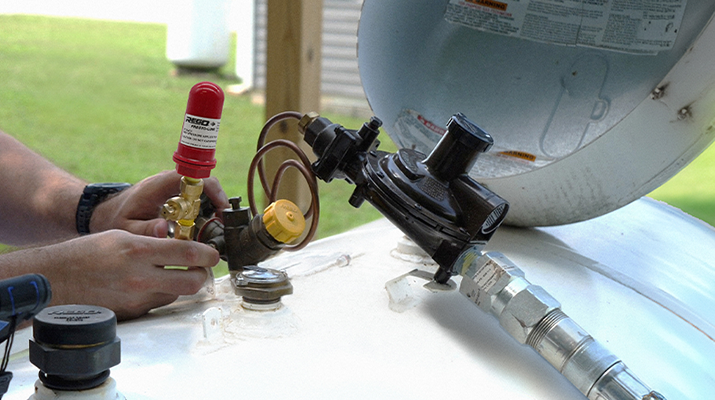How to survive a loss-control visit
If your propane business has recently secured or renewed an insurance policy, your insurance carrier will likely schedule a loss-control visit.
This is a standard part of risk management and helps both you and the carrier better understand potential hazards, safety practices and ways to reduce the likelihood of costly claims. While the idea of an inspection can feel intimidating, it’s actually a valuable opportunity to improve operations and demonstrate your commitment to safety.

What is a loss-control visit?
A loss-control visit is an on-site assessment conducted by a representative from your insurance company – often called a loss-control consultant or risk-control specialist. Their goal is to evaluate your workplace, operations and procedures to identify risks that could lead to property damage, injuries or liability claims. The findings may help the carrier determine your risk profile and suggest improvements that protect your business.
When and why does it happen?
These visits usually occur shortly after a new policy is written, during renewal or after a major claim. Carriers want to understand what they’re covering and ensure that you are managing risk appropriately. For high-risk industries like propane, loss control is especially common.
The main reasons insurers conduct these visits include:
- Evaluating existing hazards
- Recommending safety improvements at your facility
- Reducing the impact of claims and the likelihood of future claims
- Ensuring compliance with underwriting guidelines
What the consultant will inspect
Loss-control consultants tailor their inspections specifically to the propane industry. However, some common areas they assess include:
- Driver qualification files: Application, motor vehicle record checks (pre-hire and annually), medical certificates for all CDL drivers as well as road-test certifications
- Vehicle inspection, repair and maintenance: Records of inspections and repairs for one year plus six months after a vehicle leaves your control; daily post-trip inspections retained for 90 days; current cargo tank certifications and annual inspections retained for 14 months
- Emergency equipment and hours-of-service documentation: Reflective triangles, fire extinguishers and spare fuses in all vehicles, as well as six months’ worth of electronic logging device/logbook records
- Accident records: Keep reports for three years after each accident.
- Employee training: Keep records of initial and ongoing industry-specific training and develop written operational policies covering safety, proper documentation and out-of-service procedures. Hold regular safety meetings with propane company employees and provide rollover prevention training every three years.
- Customer documentation: Leak check forms with complete appliance and tank data, and duty-to-warn materials annually
How to prepare
Preparation can make a big difference in how smoothly the visit goes. Here’s how to get ready:
- Contact your insurance agent: A good agent versed in propane will be able to give you a complete checklist of things to prepare for your inspection.
- Organize documentation: Be ready to show driver qualification files, safety training logs, maintenance records, inspection reports and emergency procedures.
- Ask questions: Use the visit to get expert advice. Consultants often offer practical suggestions that can reduce risks and costs.
What happens after the visit?
After the inspection, the consultant will prepare a report summarizing their observations and recommending improvements. Some recommendations may be labeled as mandatory – especially if they relate to major safety concerns – while others are suggestions for best practices.
You may be given a deadline to implement critical changes. If not addressed, these recommendations could impact your coverage, lead to higher premiums or even result in policy cancellation in severe cases.
The bottom line
A loss-control visit isn’t about finding fault – it’s about helping your business become safer and more resilient. The insights you gain can lower your insurance costs, prevent accidents and improve overall operations. By being proactive and cooperative, you can make the most of the visit and show your insurer that you take risk management seriously.
Frank Thompson is a chartered property and casualty underwriter based in Phoenix. He is the owner of PT Risk Management. Visit ptrisk.com or call 800-556-8228 to learn more.
Featured homepage image: Pattanaphong Khuankaew/iStock / Getty Images Plus/Getty Images
Related Articles
2025 State of the Market: Insurance
















